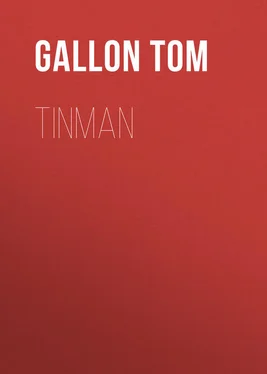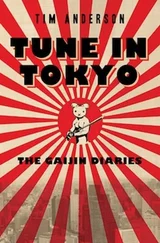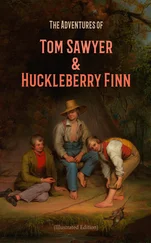Tom Gallon - Tinman
Здесь есть возможность читать онлайн «Tom Gallon - Tinman» — ознакомительный отрывок электронной книги совершенно бесплатно, а после прочтения отрывка купить полную версию. В некоторых случаях можно слушать аудио, скачать через торрент в формате fb2 и присутствует краткое содержание. Жанр: foreign_antique, foreign_prose, на английском языке. Описание произведения, (предисловие) а так же отзывы посетителей доступны на портале библиотеки ЛибКат.
- Название:Tinman
- Автор:
- Жанр:
- Год:неизвестен
- ISBN:нет данных
- Рейтинг книги:5 / 5. Голосов: 1
-
Избранное:Добавить в избранное
- Отзывы:
-
Ваша оценка:
- 100
- 1
- 2
- 3
- 4
- 5
Tinman: краткое содержание, описание и аннотация
Предлагаем к чтению аннотацию, описание, краткое содержание или предисловие (зависит от того, что написал сам автор книги «Tinman»). Если вы не нашли необходимую информацию о книге — напишите в комментариях, мы постараемся отыскать её.
Tinman — читать онлайн ознакомительный отрывок
Ниже представлен текст книги, разбитый по страницам. Система сохранения места последней прочитанной страницы, позволяет с удобством читать онлайн бесплатно книгу «Tinman», без необходимости каждый раз заново искать на чём Вы остановились. Поставьте закладку, и сможете в любой момент перейти на страницу, на которой закончили чтение.
Интервал:
Закладка:
Tom Gallon
Tinman
PART I
CHAPTER I
What I Found in the Wood
In all that I shall set down here, in telling the strange story of my poor life, I shall write nothing but the truth. It has been written in many odd times and in many odd places: in a prison cell, on paper stamped with the prison mark; on odd scraps of paper in a lonely garret under the stars, with a candle-end for light – and I, poor and old and shivering – scrawling hastily because the time was so short. I have been at once the meanest and the greatest of all men; the meanest – because all men shuddered at the mere mention of my name, and at the thought of what I had done; the greatest – because one woman loved me, and taught me that beyond that nothing else mattered. I have lived in God's sunlight, and in the sunlight of her eyes; I have gone down into the Valley of the Shadow of Death, and have not been afraid; I have been caged like a wild beast, until I forgot the world, just as the world forgot me. In a mere matter of the counting of years I am but little past forty years of age; yet I am an old man, and I have lived two lives – just as, when my time comes, I shall have died two deaths. I have touched the warm lips of Love; I have clasped the gaunt hands of Misery. I have warmed both hands at the fire of Life; but now the fire has gone out, and only the cold grey ashes remain. But of all that you may read, just as I have written it, and as the memory of it has come back to me. Roll up the curtain – and see me as I was – and judge me lightly.
It is not necessary that you should hear what manner of boy I was, nor how I impressed those with whom I came in contact. I have no recollection of my parents; they died, perhaps mercifully for them, when I was quite young. I went to school in the ordinary way; I would not have you think that I was anything but an ordinary boy. A little dreamy, perhaps, and introspective; with those hopes and high ideals that come to youth generally a little stronger in my case than in that of most boys. I had a very decent fortune, left in the hands of a highly respectable guardian; for the rest, apart from the mere matter of education, I discovered pretty early that I was to be left to my own devices, it being considered sufficient that I should grow up as a gentleman, and should please myself. I think now that if I had had some guiding will stronger than my own, I might never have done what I did, and I might now be a highly respectable citizen, respected by those who knew me, and with a life of easy contentment spreading itself fairly about my feet. Instead of which —
I had made up my mind to be an artist; to that direction all my thoughts and dreams and ideas tended. I would paint great pictures; I would wander through the cities of the world, and see the pictures other men had painted; I would live a life that had in it nothing of commercialism, and nothing of the sordid. I did not know then how circumstances mould a life and change it; how rough-fingered Fate can step in, and tear asunder in a moment the fair threads we have woven, and twist and tangle them, and ruin the fabric. Like many another poor fool before me, I told myself that I could do what I liked with my life, and shape it in what fashion I would.
Up to this time – that is, the time when I began to think for myself, and to take my life into my own hands – I had not met my guardian. I had had one or two curt and business-like notes from him during my schooldays; and when I went to London I found that he had taken a lodging for me, and had made various arrangements for my future. He was a little contemptuous as to the profession I had adopted; but shrugged his shoulders, and suggested that it was no real concern of his. I met him first, on my coming to London, at his office in the City – an office in a narrow dingy court, where he was in a position of some authority as manager to a big firm. I know nothing of business, and knew nothing then; I only know that he received me in a private room, and that I had a dim understanding that in another room still more private was one greater than himself, to whom he looked for instructions, just as all those below him looked to him. Jervis Fanshawe, with half a dozen little white stops let into the edge of the big desk at which he sat, to enable him to communicate with his subordinates, was evidently a power to be reckoned with.
I think, in that moment when I first saw the man, that I knew instinctively I did not like him. He was leaning forward across the great desk, with his arms stretched out upon it, and with a paper-knife balanced between his hands lengthwise; he seemed to be summing me up, and making up his mind about me. He was a man of about thirty-five, inclined to baldness, and with a long clean-shaven face; he gave one the impression that if he had allowed his beard to grow, it would have been singularly black. His nose was long and thin, with rather wide nostrils; and there was a deep cut in the very centre of his chin. Altogether it was a strong face, and a sinister.
I was beginning to feel uncomfortable when at last he dropped the paper-knife, and stood up to shake hands with me. "So you are Charles Avaline?" he said. "I'm glad to see you. How old are you? I forget times and dates."
"I shall be twenty in a month," I replied, "but I feel much older."
"Most people do at your age," he retorted. "Well – there are certain arrangements to be made about your future – your income, and so on" – he was looking down at the desk, and shifting some papers about uneasily there – "and perhaps it would be better if you came round to my rooms to-night to see me. I've got an old-fashioned place in Bloomsbury; perhaps you'll dine with me there. I'll write the address down for you; seven sharp, please."
I felt myself dismissed, and went away, to make acquaintance with that London that I felt was to be my home for some considerable time to come. Boy that I was, I wandered its streets happily enough for the greater part of the day, feeling that this was my kingdom, and that I had come into full possession of it already. Here I was to work, and live, and dream, and be happy. I have thought since of that day – dreamed those dreams again – and laughed to think that it was really to be the one day in all my life that I was to see London with those eyes at all.
It was a fine night, and I walked to Bloomsbury; having some difficulty in finding it, because my pride forbade that I should appear a country bumpkin, unacquainted with London, and under the necessity of asking my way. Coming to the house hurriedly and a little late, I saw a man who had been going along before me mounting the steps of the house, and tugging at the bell. Having rung, he turned about, with his hands on his hips, and with a cane in one hand resting against his hip, and surveyed me, as I waited a couple of steps below him, awkwardly enough, for the door to open. He had the advantage of being bigger and older than I was, to say nothing of the two steps upon which he was mounted.
He was a big young man, some ten years older than myself; very well dressed, and with a swaggering air upon him that made me even then feel my blood tingle a little. He stared down at me, and pulled at a little dark moustache he wore; and then looked over my head. I was glad when the door was at last opened, and when he faced about, and marched in.
There was another uncomfortable pause, in a room that was apparently my guardian's sitting-room, until my guardian put in an appearance; a pause during which the big young man and myself wandered about uncomfortably, and looked at the few pictures, or stared out of the window. Then Jervis Fanshawe came in, and introduced us.
"This is a – a friend of mine – Mr. Gavin Hockley," he said, glancing at the other man a little resentfully, as I thought. "My ward – Mr. Avaline." The young man glanced at me for a moment, and nodded, and turned away. "We can go in to dinner; we're a small party – but none the worse for that, I hope."
Читать дальшеИнтервал:
Закладка:
Похожие книги на «Tinman»
Представляем Вашему вниманию похожие книги на «Tinman» списком для выбора. Мы отобрали схожую по названию и смыслу литературу в надежде предоставить читателям больше вариантов отыскать новые, интересные, ещё непрочитанные произведения.
Обсуждение, отзывы о книге «Tinman» и просто собственные мнения читателей. Оставьте ваши комментарии, напишите, что Вы думаете о произведении, его смысле или главных героях. Укажите что конкретно понравилось, а что нет, и почему Вы так считаете.












